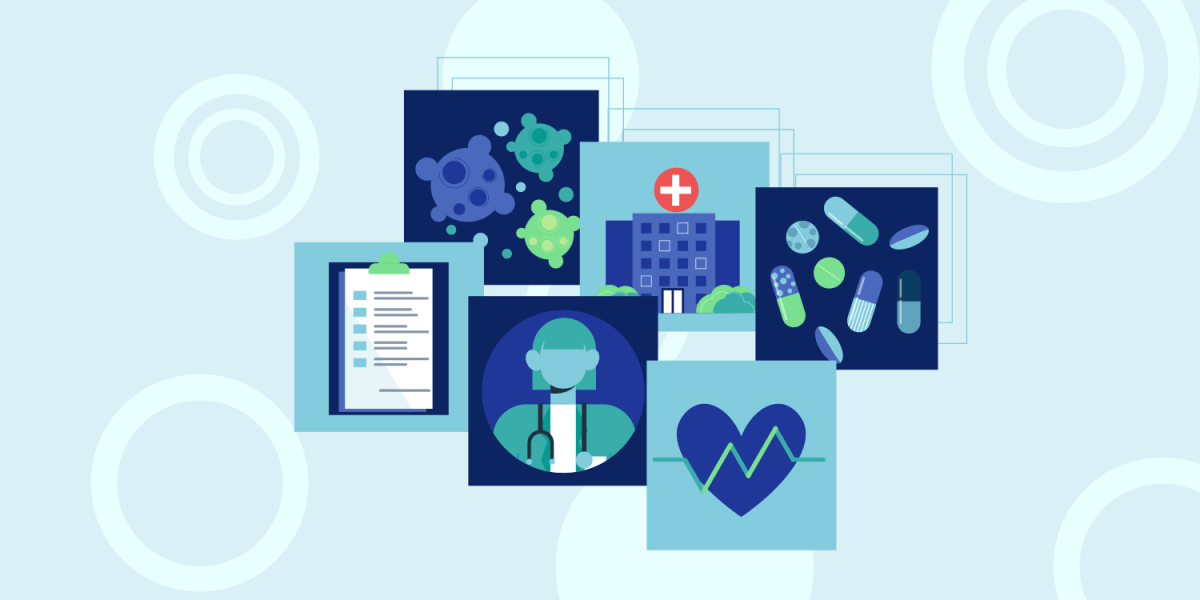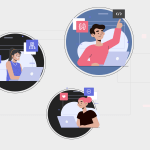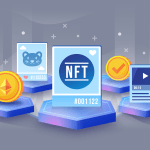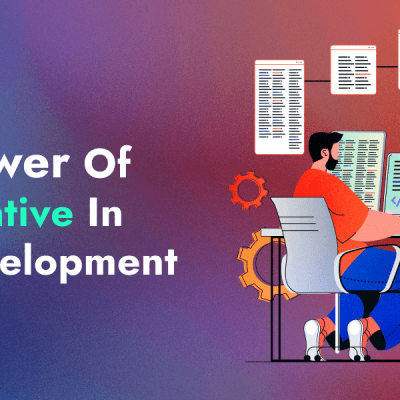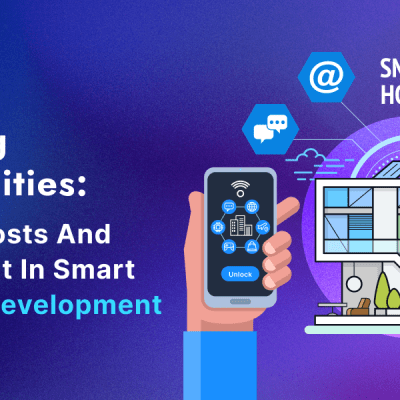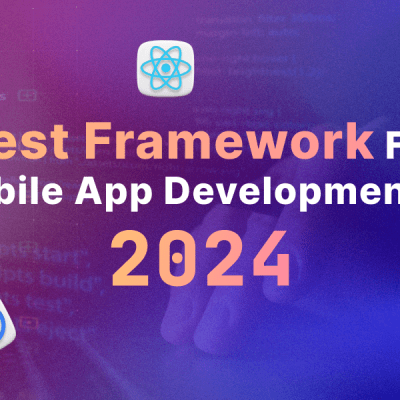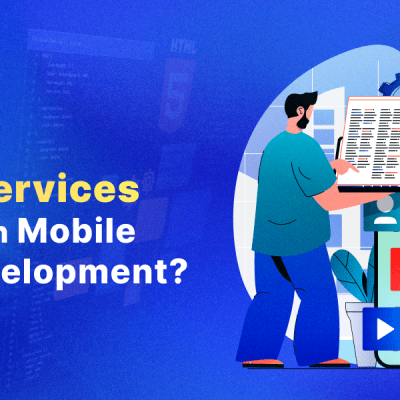Health and medical facilities are no longer bound to physical consultancy and face-to-face patient-doctor meetups. Digital revolutions have connected everyone and everything and blurred global boundaries. With health and fitness applications being adopted by people, there is a significant surge in healthcare app development. People have become extra health conscious after the Covid pandemic and do not take their health lightly.
They have started conducting regular health checkups, maintaining proper health records, eating a healthy diet, and being more driven to fitness. All these things can be done through a mobile application. If you are connected to the medical field and looking to dive your way into the digital world, here are some of the statistics that might help you make the right choice.
mHealth Statistics defining the rise of healthcare across the globe:
- The number of health and medical apps in the Google Play Store is 54,546 according to the reports from Statista.
- The number of mHealth apps in the Apple App Store reaches 41,570 based on the data from Statista.
- The number of health apps in the Amazon app store reaches 2,380 based on the reports from Statista.
- The market size of telemedicine is expected to grow by 460 Billion US dollars by the end of the year 2030.
- According to the research from MarketsandMarkets, IoT in the healthcare market is expected to grow worth $188.2 Billion by the end of 2025.
There are plenty of reasons why there is a surge in the development and usage of health apps. It offers ease, comfort, accuracy, and a plethora of benefits. Check them out:
Benefits of Developing A Healthcare Mobile Application
1) Lesser Possibility of Errors
Medical staff is in need of plenty of clinical resources to make reliable and correct decisions regarding the diagnosis conducted. With the advent of mobile apps, nurses, doctors, and patients can easily access data and lab results anytime and from anywhere. Mobile apps can also be used as a guide for clinical rules, and drug references. Having all the data and record easily accessible and maintained reduces the chances of errors and improves productivity. Looking from the patient’s end, they can get early warnings for any major health issue or discover any complication at an early stage and get treatment in a timely manner.
2) Promotes Fit and Healthy Lifestyle
People are becoming aware of living a healthy lifestyle and not everyone has time and money to go to the gym or hire a diet expert to balance their food and workouts. This is where fitness app development comes into play. There are several apps in different categories like workout apps, diet apps, yoga, and meditation apps, which are available for free or charge very minimal for the individual to use and follow. It helps users to enter their fitness goals and get a customized plan to achieve them.
It promotes healthy eating, an accurate sleep cycle, and working out. Wearables have really up the game with their splendid features like monitoring heart rates, blood pressure, steps walked, calories gained and burnt, and plenty of such features. Fitness app developers have also integrated the feature of chatting with the expert where users can ask their queries, take tips, and consult with an actual expert.
3) Streamline Medical Processes
Medical processes are lengthy and time-consuming and there are numerous repetitive tasks to do. The digital platform can simplify and streamline the process. The medical staff doesn’t need to fill registers for patient entry or record incoming stock and medical supplies. Everything can be filled into the apps and stored there reducing the efforts of creating and maintaining old-school registers.
Healthcare App Development Trends to Follow
The healthcare sector has improved and evolved immensely in the past years. With changing technology and different trends, the health and medical industry has shown tremendous growth. Here are some of the latest trends to follow and integrate into your application.
1) Big Data
The market for big data is expected to reach $273.4 billion by the year 2026. This definitely makes Big data one of the biggest mobile app development trends to watch out for. Big data has a significant impact on the health industry. It allows patient-centric and value-based care. It allows medical facilities to prevent disease outburst, predicts upcoming epidemics, provides detailed medical insight, enhances life quality, and prevent death ratio. Here are some of the benefits of using Big Data in the medical sector.
- Reduces waiting time
- Cut costs
- Eradicated medication errors
- Improves service quality
- Better security
- Preventive care instead of reactive care
- Personalized treatment and medical care
2) Artificial Intelligence
There is no wonder in fact that AI is by far one of the most important healthcare trends. AI is changing modern-day healthcare delivery. The use of artificial intelligence in healthcare is expected to grow to $102.7 Billion by the year 2028. AI helps reduce costs and handle healthcare data. AI has technologies that can enable machines to sense, learn, and information about different clinical trials and administer healthcare functions.
3) Internet of Things
IoT is also one of the most prominent healthcare trends. With wearable and connected technology, patients can monitor everything at their fingertips. It can simplify patients’ routines and help them remember things like taking medicines on time, a reminder to drink water, taking a walk as they are sitting idle for a long time, and many more. Here are some of the use cases of IoT in healthcare:
- Activity trackers
- Connected inhalers
- Ingestible sensors
- Connected lens
- Closed-loop insulin delivery
4) Voice Search
Voice search has taken an inseparable place in not just the medical domain but in each and every industry. It helps patients to search for nearby doctors, get their addresses or contact details, and search for any other information needed. Voice search can also be an assistant to doctors in researching or knowing procedures for any trials. Alexa and Google home have made their permanent place in plenty of medical facilities and they will keep growing.
5) Blockchain
We have always heard about blockchain technology being used for cryptocurrencies and more specifically bitcoin. However, the use of blockchain is not limited just to cryptocurrencies, in fact, can also be used in the healthcare sector. One of the best use cases of blockchain in healthcare is recording and storing patient data with utmost security. It uses the highest level of encryption and can be considered a hectic task which is simplified with the use of blockchain.
Customer retention can be increased by assuring patients that their medical records are in a safe place. Blockchain helps develop a solution that is a transparent, non-corruptible, and decentralized log of all medical records which adds to the security of healthcare applications.
Types of Healthcare Mobile App Development
Healthcare apps are divided into two main categories: Patients and Doctors. These apps have benefited both parties equally. Let’s check out how:
1) Patient Side Application
Patient side app is developed to help patients take their care more easily and conveniently. These apps make communicating with doctors quick and easy. Here’s what they do:
- Book Appointments Online
Mobile app development in the healthcare sector allows patients to book their appointments online without having to come to the clinic early and wait for their chance. These apps also help you fill out the pre-visit forms and help keep medical records and also related invoices. This helps them manage billing claims virtually. There is no fear of missing or losing any bills for mediclaim.
- Health Tracking
This category of apps helps patients to track and monitor their health. It helps track symptoms of any disease, and monitor sleep, heart rate, blood pressure, diabetes, and many such things.
- E-Learning
These apps allow patients to learn about the latest development and technological advancements in the health and fitness sector. It provides knowledge and study materials that can be referred by medical students to stay updated. It also contains a list of medical terms with its meaning in simplified language, pictures, diagrams, and other materials.
- Fitness Apps
Fitness app development motivates users to exercise regularly, eat a healthy and balanced diet, and maintain a healthy lifestyle. The fitness app tracks food intake, and water intake, and checks calorie count. It also sets a fitness goal based on your BMI and helps you achieve it with tips and tricks.
2) Doctor Side Application
Doctor-side apps are developed to assist doctors, nurses, clinical researchers, admin staff, and other health professionals. Let’s see how:
- Appointment Scheduling
With mobile apps, doctors can provide appointments and know their schedules from anywhere at any time. They can also consult their patients virtually, provide online prescriptions, and take consultancy fees online to save time.
- Online Health Records
With a mobile application in the medical sector, doctors can manage and maintain the health records of all patients digitally. This reduces the chances of losing data and also having easy access whenever needed. It also records the entry of hospital staff, and visitors, recommendations for lab testing, and other things.
- Social Networking Health App
We all are familiar with social media apps where we can share pictures, and videos, connect with new people and chat with each other. The same concept has to be implemented with medical apps. A special social networking app for medical practitioners helps doctors to connect with each other, share their knowledge and expertise, and come up with a better healthcare system for the future.
Final Words
There are abundant things to take care of while developing a healthcare app. If you are a novice with limited knowledge of the latest trends, and the most popular features to integrate, it is advisable to book a consultation with an experienced healthcare app development company and get started. Industry experts can give a better solution to your app idea.
FAQs
Some of the basic questions popping into your head can be answered here. Feel free to ask anything in the comments section.
1) How much does it cost to develop a health and fitness app?
There is no pre-defined cost of mobile app development. It differs from project to project. Before you approach any mobile app development company with this question, make sure to figure out all the criteria of your project like features and functionality to integrate, a platform to pick, a timeline, and a hiring model.
2) How much time is needed to develop and launch a healthcare application?
Development time is also project specific. Depending on the nature of the project, whether it is an MVP or a feature-filled app, the number of developers and the type of developers you hire decided the deployment time.
3) How can I hire a mobile app development company to work on my project?
There are three basic modes through which you can hire any company. You can either pick a fixed-cost model, or a per-hour model or hire a dedicated developer to work on your project.
4) Which is a better choice: Native app development or cross-platform app development?
If you want an app with heavy data and for the long term, native fits well. If you are developing an app with limited features and data with less budget, cross-platform seems a better choice.
5) What are the important criteria to check while hiring a company?
Some of the factors to check while hiring a mobile app development agency are the portfolio of a company, client testimonials, years of experience, the experience of the developers, and the industries in which they have worked.
